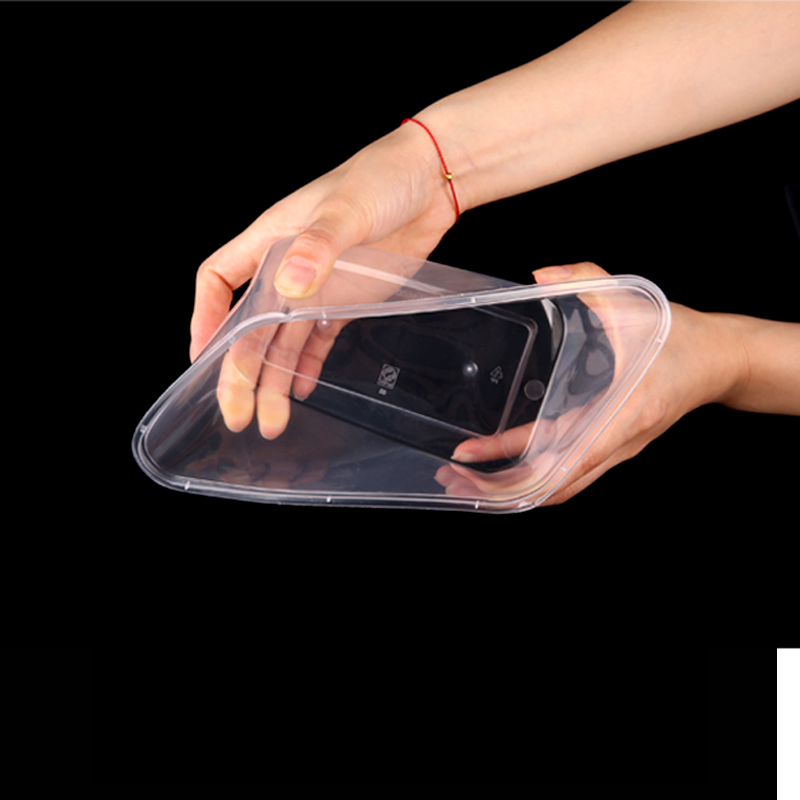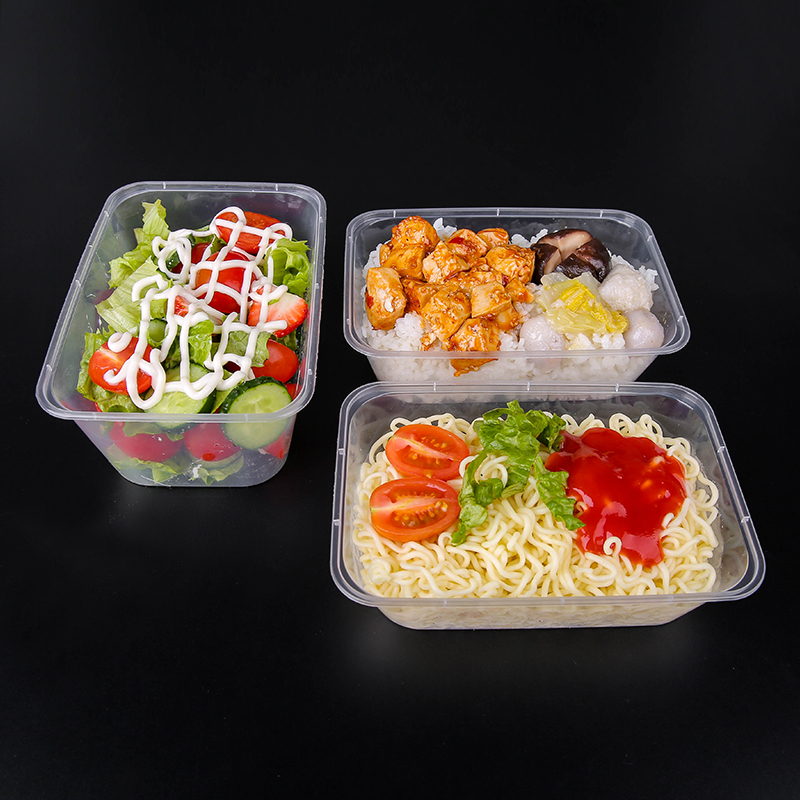
In today’s fast-paced life, where convenience and freshness matter equally for meals, PP salad bowls have become a go-to option for homes, cafes, and food vendors. Made from polypropylene (PP), a safe and versatile plastic, these bowls balance durability, functionality, and ease of use—making them ideal for serving salads and other cold or room-temperature dishes.
Safety and Food Compatibility
A key advantage of PP salad bowls is their safety for food contact. PP is approved by food regulatory bodies worldwide because it does not release harmful chemicals into food, even when in contact with acidic or oily ingredients common in salads (like vinegar, olive oil, or citrus dressings). Unlike some other plastics, PP is also heat-resistant to a certain degree—typically up to 160°C (320°F)—though it is most commonly used for cold dishes. This heat resistance means it can handle short periods of contact with slightly warm foods, such as roasted vegetable salads, without warping or leaching.
For consumers concerned about food safety, PP salad bowls offer peace of mind. They are non-toxic, BPA-free, and do not absorb odors or flavors from food. This means a bowl used for a garlicky Caesar salad won’t retain the garlic smell when reused for a fruit salad later—ideal for home use where bowls are often washed and repurposed.
Durability and Practicality
PP salad bowls are known for their sturdiness. Unlike fragile glass bowls that can break if dropped, or thin paper bowls that tear easily, PP bowls are shatterproof and resistant to cracks. This makes them perfect for outdoor use—like picnics, barbecues, or beach outings—where accidents are more likely. Their rigidity also means they hold their shape well, even when filled with heavy salad ingredients (such as croutons, nuts, or chopped meats) or when carried in a bag.
Another practical feature is their lightweight design. PP is a lightweight plastic, so even large salad bowls are easy to carry—whether you’re bringing a salad to a potluck or a vendor is transporting bowls to a market. Additionally, many PP salad bowls have a smooth, non-stick interior, which makes tossing salads easier (dressings coat ingredients evenly without sticking to the bowl) and cleaning simpler. Most PP bowls are dishwasher-safe, though some manufacturers recommend top-rack washing to preserve their appearance over time.
Design Variety for Different Needs
PP salad bowls come in a wide range of designs to suit various uses. For home kitchens, there are stackable options—these save space in cabinets, as multiple bowls can be nested together. Some home-use bowls also have lids, which are great for storing leftover salad in the fridge or packing a salad for lunch. The lids often have a tight seal to keep ingredients fresh and prevent dressings from leaking.
For commercial use (like cafes, delis, or food trucks), there are disposable PP salad bowls. These are pre-portioned in different sizes (from small 8-ounce bowls for side salads to large 32-ounce bowls for main-course salads) and are often clear or translucent. Clear bowls let customers see the fresh, colorful ingredients inside—appealing to those who prioritize visual appeal in their meals. Some disposable PP bowls also have compartmentalized designs, which keep salad components separate (e.g., greens in one section, dressing in another) until ready to eat—perfect for grab-and-go meals where freshness is key.

Environmental Considerations
While PP is a plastic, it offers better environmental credentials than some alternatives. PP is recyclable in most areas, as long as it is clean and separated from other waste. Many recycling programs accept PP (marked with the resin identification code “5”), making it a more sustainable choice than non-recyclable plastics or single-use paper bowls that often end up in landfills.
For those seeking even more eco-friendly options, there are PP salad bowls made from recycled PP. These bowls use post-consumer plastic waste (like old water bottles or food containers) that has been processed and repurposed, reducing the need for new plastic production. Some brands also offer compostable PP alternatives, though these require industrial composting facilities to break down fully.


